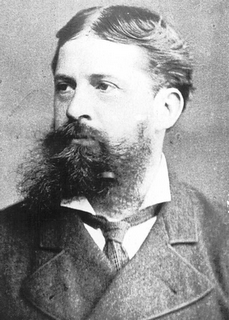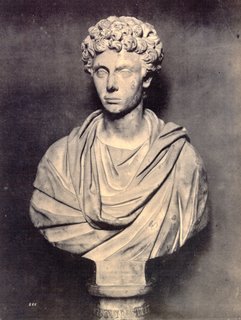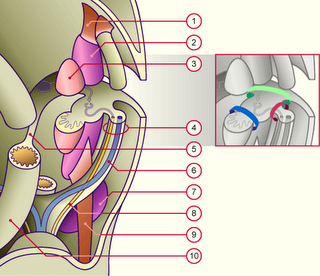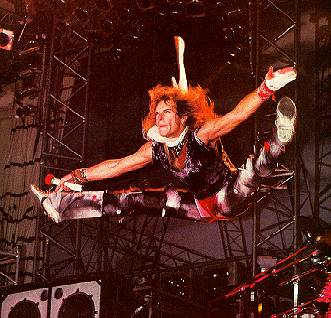
On Saturday, I'm going to a performance of Don DeLillo's new play
Love-Lies-Bleeding at Steppenwolf. I'm pretty excited about this, as reading
White Noise and then
Underworld were pretty formative experiences for 18-year-old me (props to the
The Sugar Shack). I read
Mao II when I was 16, but I don't think I appreciated it (partly because I don't think I knew who Mao was, and I kept waiting for him, Godot-like, to show up - okay, that was embarassing, but I feel cleaner now). Delillo's ability to measure the dizzying effects of American history and culture on the experience of living makes him, implicitly, one of the most profound, living cultural commentators we have. Delillo's fictions show us not how to live, but how we do live, and it's deadly serious and incredibly funny all at once. End of obligatory encomium.
But I'm in sort of a spot. After the performance, Delillo will be in the lobby signing books and answering shallow questions and nodding, embarassed, as sputtering jerks like me try to tell him how totally great his writing is. I've always had an aversion to talking to famous people, or even people who aren't famous, but who's work I really like. When I wrote for
my college newspaper, interviews were certainly my weakest point. I could ask interesting questions, but honestly, I found that I had nothing in common with most of the people I talked to, and couldn't engage with them in any non-journalistic fashion. The only exception to this is maybe Angus Andrew of the Liars, but dude is so easy-going and friendly that it's pretty hard not to get along with him. Out-and-out trainwrecks include Fiery Furnace Matthew Friedberger and Moving Unit Blake Miller (in my defense, Friedberger was my first interview ever, while Blake Miller was [is?] a pretentious dick and his band is awful). Every other interview / social situation with a band or actor whose music or acting I like ends up being sort of awkward and uncomfortable.
Which brings me to this spot I'm in. Do I get Delillo's autograph? Do I try to tell him he's awesome? There's something that's so incredibly embarassing about asking for an autograph, which is why I find it so strange that people want to do it. There will be nothing more strange than watching Delillo sign a copy of
Underworld, thus allowing that person to fetishize a novel that is, at least in part, about the fetishizing of history (Nick Shay's baseball). It's not the gleeful fetishizing that weirds me out, though - it's the willful, public supplication that people perform. The book signing has all of the hallmarks of kneeling before a king, or kissing the pope's ring. You stand as the author sits, and you lean in to give him to book as he looks at you and asks you who you would like the book signed to. Perhaps he asks you some trivial detail about your life, and he makes you feel special because now, just as you walk out of the signing with signpost of his presence, he also leaves with a tiny piece of you. But that gesture towards exchange, rather than bestowal, actually amplifies the fetishization of the signature. Because now you're not just fetishizing an object (a book signed by Delillo), you're fetishing an historical event - memory and imagined understanding palpably ingrained in a few unreadable ink swoops. Part of you has been colonized by the memory written into this thing, and part of your consciousness becomes synonymous with the object.
But what's so vexing is that I know it's absurd and sort of creepy that people give in to the ritual of the thing, want to,
need to fetishize the books as a substitute for the author. I know it's creepy and absurd, but I still find myself scanning my bookshelves for the right one. Should I have him sign the same copy of
Underworld that I first read, the one I sat up feverishly underlining, scribbling in the margins? That would be enacting some kind of weird meta-nostalgia, as if Delillo were actually signing my reading experience - maybe that's a bit too intimate. Should I have him sign the copy of
White Noise that I stole after I lost my original copy? It would take some of the visceral punch out of the thing, that's for sure. Or maybe I should have him sign a book of his that I've yet to read -
Ratner's Star, maybe. I have a copy already. It could be a prefab fetish, all ready to cordon of a part of me, or anyone, really. I could sell them in supermarkets.
Conflicted, to say the least. It seems that it's all or nothing - either give in to the reverential ecstasy, the ritual of the thing, or else don't. I probably won't do it. Seeing celebrities (or whatever Delillo is) when they can't see you is more satisfying somehow. You get to flip the power dynamic - these people who enter you through your eyes and ears, show up in your home, stare at your from the back page of strangers' newspapers and bookspines, pop into your thoughts when you don't expect them - you watch them move and talk and be nervous and say dumb things and you do it without capitulating to a commodity, or by placing a bit of yourself in some other thing. You take a little bit of celebrity's overwhelming power by taking away its body, and that, ephemeral as it may be, is more valuable than a signature.
--------------
Postscript: That being said, if anybody
else would like a book signed by Don Delillo, I would be rabidly, excruciatingly pleased to have one signed for you.











